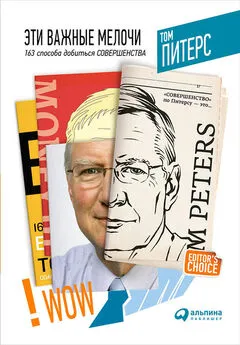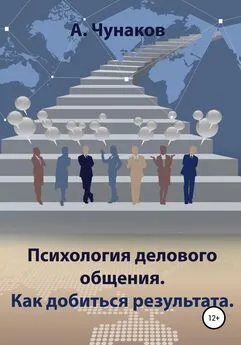Томас Лис - Психология переговоров. Как добиться большего
- Название:Психология переговоров. Как добиться большего
- Автор:
- Жанр:
- Издательство:Манн, Иванов и Фербер
- Год:2016
- Город:Москва
- ISBN:978-5-00100-067-9
- Рейтинг:
- Избранное:Добавить в избранное
-
Отзывы:
-
Ваша оценка:
Томас Лис - Психология переговоров. Как добиться большего краткое содержание
Эта книга написана не только для тех, кому нравится договариваться, но и для тех, кто переговоров избегает, а также для тех, кому сложно понять, угадал он или прогадал, вступив в переговоры. В ней нашли отражение результаты эмпирических исследований, которые авторы проводили на протяжении нескольких десятилетий, тщательно анализируя различные стратегии и проверяя их эффективность в различных условиях применения.
Книга будет полезна всем, кому приходится вступать в переговоры и вести их – как на работе, так и в повседневной жизни и в семье.
На русском языке публикуется впервые.
Психология переговоров. Как добиться большего - читать онлайн бесплатно ознакомительный отрывок
Интервал:
Закладка:
51
Tversky A., Kahneman D. Judgment under uncertainty: Heuristics and biases // Science. – 1974. – № 185. – P. 1124–1131.
52
Northcraft G. B., Neale M. A. Experts, amateurs, and real estate: An anchoring and adjustment perspective on property price decisions // Organizational Behavior and Human Decision Processes. – 1986. – № 39. – P. 228–241.
53
Einhorn H. J., Hogarth R. M. Ambiguity and uncertainty in probabilistic inference // Psychological Review. – 1985. – № 92. – P. 433–461.
54
Galinsky Adam D., Mussweiler Thomas. First offers as anchors: the role of perspective-taking and negotiator focus // Journal of personality and social psychology. – 2001. – Vol. 81. – № 4. – P. 657; Galinsky A. D., Mussweiler T., Medvec V. H. Disconnecting outcomes and evaluations: The role of negotiator focus // Journal of Personality and Social Psychology. – 2002. – № 83. – P. 1131–1140.
55
Huber V. L., Neale M. A. Effects of cognitive heuristics and goals on negotiator performance and subsequent goal setting // Organizational Behavior and Human Decision Processes. – 1986. – № 38(3). – P. 342–365.
56
Цит. по: Galinsky Adam D., Mussweiler Thomas.
57
Langer E. J., Blank A., Chanowitz B. The mindlessness of ostensibly thoughtful action: The role of “placebic” information in interpersonal interaction // Journal of Personality and Social Psychology. – 1978. – № 36(6). – P. 635; Bies R. J., Shapiro D. L. Interactional fairness judgments: The influence of causal accounts // Social Justice Research. – 1987. – № 1(2). – P. 199–218.
58
Epley N., Gilovich T. Putting adjustment back in the anchoring and adjustment heuristic: Differential processing of self-generated and experimenter-provided anchors // Psychological Science. – 2001. – № 12. – P. 391–396; Epley N., Gilovich T. When effortful thinking influences judgmental anchoring: Differential effects of forewarning and incentives on self-generated and externally provided anchors // Journal of Behavioral Decision making. – 2005. – № 18. – P. 199–212; Epley N., Gilovich, T. The anchoring-and-adjustment heuristic: Why the adjustments are insufficient // Psychological Science. – 2006. – № 17. – P. 311–318.
59
Mason M. F., Lee A. J., Wiley E. A., Ames D. R. Precise offers are potent anchors: Conciliatory counteroffers and attributions of knowledge in negotiations // Journal of Experimental Social Psychology. – 2013. – № 49(4). – P. 759–763; Janiszewski C., Dan Uy. Precision of the anchor influences the amount of adjustment // Psychological Science. – 2008. – № 19. – P. 121–127.
60
Galinsky A. D., Seiden V., Kim P. H., Medvec V. H. The dissatisfaction of having your first offer accepted: The role of counterfactual thinking in negotiations // Personality and Social Psychology Bulletin. – 2002. – № 28. – P. 271–283.
61
Simonsohn U., Ariely D. When rational sellers face nonrational buyers: Evidence from herding on eBay // Management Science. – 2008. – 54(9). – P. 1624–1637.
62
De Dreu C. K. W., Boles T. L. Share and share alike or winner take all? The influence of social value orientation upon choice and recall of negotiation heuristics // Organizational Behavior and Human Decision Processes. – 1998. – № 76. – P. 253–276; Kleef G. A. van, De Dreu C. K. W. Social value orientation and impression formation: A test of two competing hypotheses about information search in negotiation // International Journal of Conflict Management. – 2002. – № 13. – P. 59–77.
63
Curhan J. R., Neale M. A., Ross L. Dynamic valuation: Preference changes in the context of a face-to-face negotiation // Journal of Experimental Social Psychology. – 2004. – № 40. – P. 142–151; Ma’oz I., Ward A., Katz M., Ross L. Reactive devaluation of an “Israeli” vs. “Palestinian” peace proposal // Journal of Conflict Resolution. – 2002. – № 46. – P. 515–546; Ross L. Reactive devaluation in negotiation and conflict resolution // Barriers to conflict resolution / K. Arrow, R. H. Mnookin, L. Ross, A. Tversky, R. Wilson (Eds.). – New York: W. W. Norton, 1995. – P. 26–42; Ross L., Ward A. Psychological barriers to dispute resolution // Advances in experimental social psychology / M. Zanna (Ed.). – San Diego, CA: Academic Press, 1995. – Vol. 27. – P. 255–304; Lee Ross, Stillinger Constance. Barriers to conflict resolution // Negotiation Journal. – 1991. – № 8. – P. 389–404.
64
Kwon S., Weingart L. Unilateral concession from the other party: Concession behavior, attributions and negotiation judgments // Journal of Applied Psychology. – 2004. – № 89. – P. 263–278.
65
Налоговый кодекс США не предполагает никаких налогов на первые полмиллиона капитала, полученные за счет операций с основной резиденцией физического лица. Таким образом, если вы купили себе новую жилую недвижимость за миллион долларов и продали затем за полтора или меньше, никакие налоги вы платить не должны. С другой стороны, если вы продали это жилье за 1,6 миллиона долларов, то ваша прибыль подлежит налогообложению, ведь доход в такой ситуации составил 600 тысяч долларов, и если принять ставку налога равной 25 процентам, то вы должны государству 25 тысяч долларов, так как вы на 100 тысяч превысили необлагаемый налогами максимум.
66
Pruitt D. G., Rubin J. Z. Social conflict: Escalation, stalemate, and settlement. – New York: Random House, 1986.
67
Ben-Yoav O., Pruitt D. Resistance to yielding and the expectation of cooperative future interaction in negotiation // Journal of Experimental Social Psychology. – 1984. – № 20. – P. 323–353; Ben-Yoav O., Pruitt D. Accountability to constituents: A two-edged sword // Organizational Behavior and Human Decision Processes. – 1984. – № 34. – P. 282–295.
68
O’Connor K. M., Arnold J. A., Burris E. R. Negotiators’ bargaining histories and their effects on future negotiation performance // Journal of Applied Psychology. – 2005. – № 90(2). – P. 350.
69
Vallacher R. R., Wegner D. M. Levels of personal agency: Individual variation in action identification // Journal of Personality and Social Psychology. – 1989. – № 57. – P. 660–671.
70
Tinsley C. H., O’Connor K. M., Sullivan B. A. Tough guys finish last: The perils of a distributive reputation // Organizational Behavior and Human Decision Processes. – 2002. – № 88. – P. 621–642.
71
O’Connor K. M., Arnold J. A. Distributive spirals: Negotiation impasses and the moderating effects of disputant self-efficacy // Organizational Behavior and Human Decision Processes. – 2001. – № 84. – P. 148–176.
72
O’Connor K. M., Arnold J. A., Burris E. R. Negotiators’ bargaining histories and their effects on future negotiation performance // Journal of Applied Psychology. – 2005. – № 90. – P. 350–362.
73
Halpern J. J. The effect of friendship on personal business transactions // Journal of Conflict Resolution. – 1994. – № 38(4). – P. 647–664.
74
Кстати, этот парадокс лег в основу знаменитой статьи Джорджа Акерлофа «Рынок “лимонов”: неопределенность качества и рыночный механизм», которая была опубликована в 1970-х годах.
75
Morton T. L. Intimacy and reciprocity of exchange: A comparison of spouses and strangers // Journal of Personality and Social Psychology. – 1978. – № 36. – P. 72–81.
76
Valley K. L., Neale M. A., Mannix E. A. Friends, lovers, colleagues, strangers: The effects of relationships on the process and outcome of dyadic negotiations // Research on negotiation in organizations. – 1995. – № 5. – P. 65–94.
77
Thompson L. L., DeHarpport T. Negotiation in long term relationships. – Доклад на конференции Международной ассоциации по урегулированию конфликтных ситуаций. – Ванкувер (Канада), 1990.
78
Amanatullah E., Morris M., Curhan J. Negotiators who give too much: Unmitigated communion, relational anxieties, and economic costs in distributive and integrative bargaining // Journal of Personality and Social Psychology. – 2008. – № 95. – P. 723–728; Curhan J., Neale M., Ross L., Rosencranz-Engelmann J. Relational accommodation in negotiation: Effects of egalitarianism and gender on economic efficiency and relational capital // Organizational Behavior and Human Decision Processes. – 2008. – № 107. – P. 192–205.
79
White J. B. The politeness paradox. Getting the Terms you want without sacrificing the relationships you need. – 2011.
80
Goffman E. The presentation of self in everyday life. – New York: Anchor Books, 1967.
81
Curhan J. R., Elfenbein H. A., Kilduff G. J. Getting off on the right foot: subjective value versus economic value in predicting longitudinal job outcomes from job offer negotiations // Journal of Applied Psychology. – 2009. – № 94(2). – P. 524.
82
Davis M. Measuring individual differences in empathy: Evidence for a multidimensional approach // Journal of Personality and Social Psychology. – 1983. – № 44. – P. 113–126.
83
Epley N., Caruso E., Bazerman M. When perspective taking increases taking: Reactive egoism in social interactions // Journal of Personality and Social Psychology. – 2006. – № 91. – P. 872–889.
84
Epley N., Caruso E. M. Egocentric ethics // Social Justice Research. – 2004. – № 17(2). – P. 171–187.
85
Galinsky A., Mussweiler T. First offers as anchors: The role of perspective taking and negotiator focus // Journal of Personality and Social Psychology. – 2001. – № 81. – P. 657–669; Galinsky A. D., Ku G., Wang C. S. Perspective-taking and self-other overlap: Fostering social bonds and facilitating social coordination // Group Processes & Intergroup Relations. – 2005. – № 8. – P. 109–124.
86
Galinsky A., Maddux W., Gilin D., White J. Why it pays to get inside the head of your opponent // Psychological Science. – 2008. – № 19. – P. 378–384.
Читать дальшеИнтервал:
Закладка:










